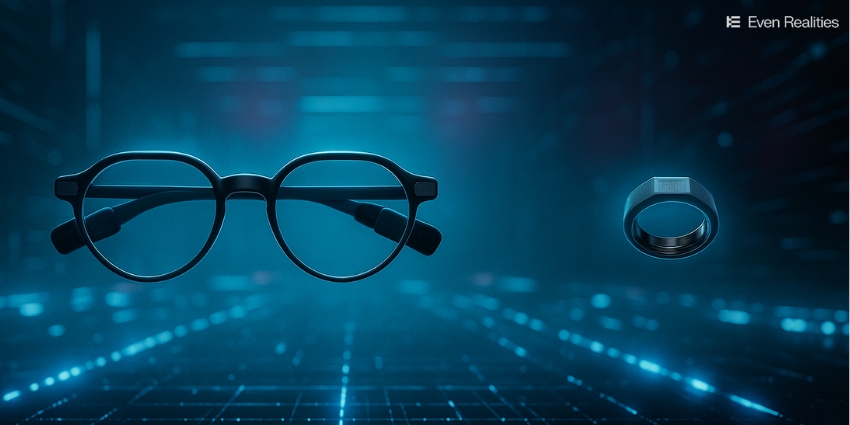As someone who’s watched the smart glasses market evolve from Google’s ambitious but premature Glass to Meta’s surprisingly successful Ray-Ban collaboration, I can tell you we’re witnessing a pivotal moment in the XR industry. Alibaba’s announcement of their Quark AI Glasses isn’t just another product launch—it’s a strategic declaration that could reshape the entire smart wearables landscape.
The Chinese e-commerce giant has just thrown down the gauntlet, announcing plans to release AI-powered smart glasses by the end of 2025, directly challenging Meta’s growing dominance in the consumer and enterprise smart glasses market. According to CNBC, these aren’t just another pair of connected eyewear—they’re powered by Alibaba’s Qwen large language model and advanced AI assistant Quark, positioning them as a formidable competitor in the increasingly crowded smart glasses arena.
The Tech Specs That Matter for Business
What makes Alibaba’s approach particularly intriguing for enterprise buyers is the comprehensive feature set that addresses real workplace challenges. The Quark AI Glasses promise hands-free calling, music streaming, real-time language translation, and meeting transcription—capabilities that could transform how international teams collaborate and communicate.
The integration with Alibaba’s broader ecosystem presents both opportunities and considerations for enterprise adoption. Users will reportedly access navigation services, make payments through Alipay, and compare prices on Taobao directly through the glasses. For businesses operating in Chinese markets or working with Chinese partners, this level of integration could prove invaluable.
“Many tech companies see wearables, specifically glasses, as the next frontier in computing alongside the smartphone,” the announcement emphasized, highlighting the strategic importance of this market segment.
Market Dynamics and Competitive Intelligence
The timing of Alibaba’s entry is particularly significant. Meta’s Ray-Ban smart glasses have been gaining unexpected traction, with recent reports indicating revenue tripled over the past year. Community feedback from platforms like Reddit reveals a growing acceptance of smart glasses, with users praising their utility for hands-free communication and content capture.
One Reddit user noted their practical workplace application:
“Full replacement for headphones for me. Being able to listen to podcasts without completely closing off my ears at work is pretty dope.”
This sentiment reflects a broader shift toward smart glasses adoption for productivity enhancement rather than just entertainment.
However, privacy concerns remain a significant barrier. As one industry dinner attendee observed on Reddit:
“I saw numerous people ask him to take them off if they were going to talk. I think that’s the biggest barrier. Even though there is a light that indicates it’s recording, lots of people will treat these glasses like they would someone sticking a phone camera in their face.”
The China Factor: Innovation vs. Trust
Alibaba’s entry introduces fascinating dynamics around data privacy and geopolitical considerations. One Reddit user summarized the complex trust equation facing enterprise buyers: “Normally you would be very hesitant to use Chinese tech like this and pay more for similar American made tech. But the roles have almost completely reversed in less than six months.”
This reflects broader shifts in how organizations evaluate technology vendors, particularly as AI capabilities become increasingly important. Chinese companies have demonstrated remarkable progress in AI development, with Alibaba’s Qwen model competing directly with Western counterparts like OpenAI’s offerings.
For multinational enterprises, this creates both opportunities and challenges. Organizations operating globally may need to consider different smart glasses solutions for different markets, factoring in local regulations, data sovereignty requirements, and user preferences.
Enterprise Implications and Use Cases
The workplace applications for AI-powered smart glasses are expanding rapidly. Real-time language translation could revolutionize international business meetings, while meeting transcription capabilities could enhance productivity and accessibility. The hands-free nature of these devices makes them particularly valuable for field workers, maintenance technicians, and other professionals who need information access while keeping their hands free.
Manufacturing and logistics sectors could particularly benefit from integrated navigation and payment systems, especially in markets where Alibaba’s ecosystem has strong penetration. The ability to access product information, compare prices, and complete transactions without removing gloves or stopping work could drive significant productivity improvements.
Ponder This: The New Reality of Choice
We’re entering an era where smart glasses aren’t a novelty—they’re becoming genuine productivity tools. Alibaba’s entry doesn’t just mean more choice; it signals the maturation of a market that was once dominated by failed experiments and overly ambitious promises.
The real question isn’t whether smart glasses will succeed, but which ecosystem will capture enterprise adoption first. Meta has the advantage of Western market familiarity and Ray-Ban’s fashion credibility. Alibaba brings deep AI capabilities and comprehensive ecosystem integration. Both approaches have merit, and both face legitimate privacy and trust challenges.
For enterprise decision-makers, this competition is ultimately beneficial. More players mean better products, competitive pricing, and accelerated innovation. The key is staying informed about these developments and preparing for a workplace where smart glasses might become as common as smartphones are today.
The battle for your face has officially begun—and the winner might just redefine how we think about workplace technology forever.
Ready to explore the future of immersive workplace technology? Join our vibrant community of 2000+ XR professionals on LinkedIn to discuss how smart glasses are reshaping enterprise collaboration. Don’t miss the latest developments—subscribe to our newsletter for your weekly rundown of the most crucial XR industry news.







